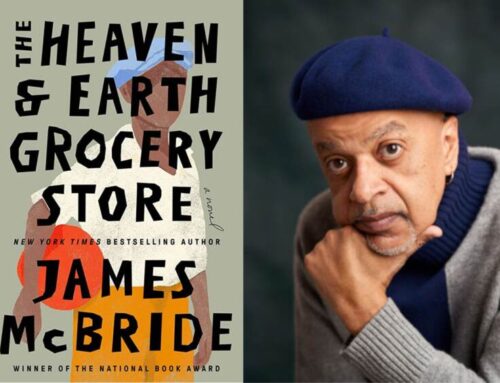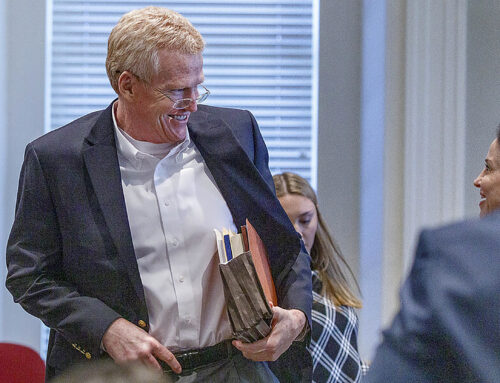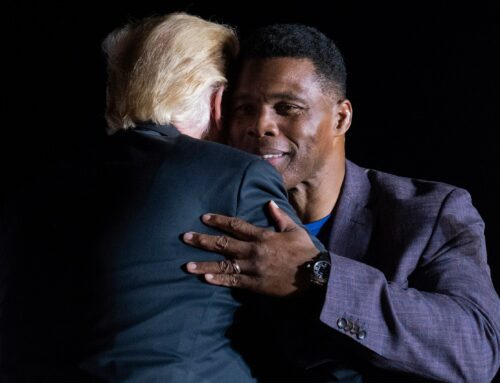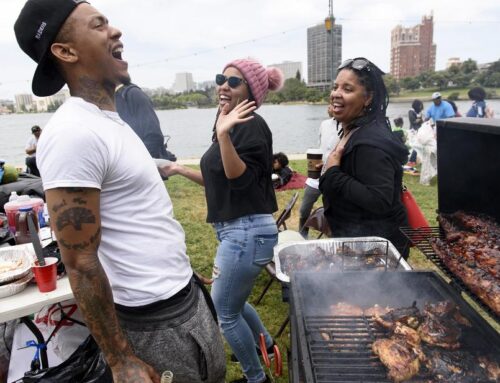We Get the Picture
by Dr. K. A. Slayton, Sr
It’s often said that a picture is worth a thousand words. The still photos of both Kamala Harris, candidate for President and Angela Alsobrooks, candidate for U.S. Senate standing side by side with their opponents on the debate stage says, even more. Yes… there is the obvious, but there is also an undeniable image of historical truth screaming at the lens. The images capture two women whose ancestors at one time in history could not look men like them in the eye. It captures two women whose place in society was meant to be seen and never heard. It shows two women whose mere presence on this stage has shifted the graves of those that have come before them. The outcomes of their respective races will become first, as they will literally shatter political ceilings that have been in place since this nation’s founding. Since the 17thAmendment to the U.S. Constitution in 1913, Maryland has never elected a black woman to serve in the U.S. Senate. Granted blacks were prohibited, by law, from participating in the voting process for 55 of those years. But since the passing of the Voting Rights Act in 1965, I would argue that there has been no more loyal demographic to the Democratic party than that of black women. And if Maryland ever wanted to demonstrate her growth and progressive pedigree now would be that time.
The images capture two women whose ancestors at one time in history could not look men like them in the eye. It captures two women whose place in society was meant to be seen and never heard. It shows two women whose mere presence on this stage has shifted the graves of those that have come before them. The outcomes of their respective races will become first, as they will literally shatter political ceilings that have been in place since this nation’s founding. Since the 17thAmendment to the U.S. Constitution in 1913, Maryland has never elected a black woman to serve in the U.S. Senate. Granted blacks were prohibited, by law, from participating in the voting process for 55 of those years. But since the passing of the Voting Rights Act in 1965, I would argue that there has been no more loyal demographic to the Democratic party than that of black women. And if Maryland ever wanted to demonstrate her growth and progressive pedigree now would be that time.
Although Hilary Clinton made a formidable run for President the notion or idea that a woman of color could potentially aspire for such higher office was almost unthinkable. That is until the selection of Kamala Harris as the Vice-Presidential running mate to our 46th President. And here we are on the edge of a world changing election. An election that will no doubt be impacted by the presence and essence of black women. The election of Alsobrooks to the U.S. Senate could very well decide the balance of power for the next four years. And the election of Harris will decide the fate of our future democracy.
 Yet, there is still something in the images of these two women standing side by side on equal platforms with men who are not only conservative in their policy positions, but very white. Let’s face it, America still has all the symptoms of racism that leads to a certain form of political sickness. As a result, our nation has an interesting history between the interactions of black women and white men. While glancing at the photos for some reason I reflected on a conversation several years ago with my late grandmother Carolyn Stone Slayton. While sitting in her living room I inquired about her grandfather, Rufus Stone. I don’t know why. I just wanted to know what she remembered of him. Before responding she took a rather lengthy pause and then she began to tell a story that has remained with me to this day. She told me how she and her sister, Rosalie and brother John shared a bedroom with her mother and her father. She reminisced with an almost delight as she ventured to remember how they played together in the fields and never lacked for activities. “There was always something to get into,” she said.
Yet, there is still something in the images of these two women standing side by side on equal platforms with men who are not only conservative in their policy positions, but very white. Let’s face it, America still has all the symptoms of racism that leads to a certain form of political sickness. As a result, our nation has an interesting history between the interactions of black women and white men. While glancing at the photos for some reason I reflected on a conversation several years ago with my late grandmother Carolyn Stone Slayton. While sitting in her living room I inquired about her grandfather, Rufus Stone. I don’t know why. I just wanted to know what she remembered of him. Before responding she took a rather lengthy pause and then she began to tell a story that has remained with me to this day. She told me how she and her sister, Rosalie and brother John shared a bedroom with her mother and her father. She reminisced with an almost delight as she ventured to remember how they played together in the fields and never lacked for activities. “There was always something to get into,” she said.
As she transitioned to speak of her grandfather, whom she referred to as Paw, she said he was a quiet man. She noted that he was not very religious, but often enjoyed a sip of the forbidden nectar. She remembered vividly that he spent a lot of time under a tree several yards away from the house. It was there, she said, “he would spend most of his free time sitting under that tree.” Often, in her words, angry. As she attempted to continue the story in another direction, I interjected with a question. My question was with regards to this “anger” she mentioned. “What was he angry about,” I asked? She sat up straight on her sofa and slightly tilted her body to the right as she began to tell the story. The story was about how the land owner where they sharecropped, regularly would come to visit their home to engage with her grandmother, Mahala Stone. ![]() “Whenever he came down,” she said, “Paw would go sit under that tree and just drink.” For a moment after those words, time stood still for us both. In my mind and in that moment, I could visualize this man that I’d never met sitting under a tree filled with an inward rage. Sitting and feeling like less than a man, because he was helpless to protect his wife. Still, I had enough since not to ask, “Why didn’t he do something.” Because I knew, she knew and of course, her grandfather knew that there was simply nothing he could do.
“Whenever he came down,” she said, “Paw would go sit under that tree and just drink.” For a moment after those words, time stood still for us both. In my mind and in that moment, I could visualize this man that I’d never met sitting under a tree filled with an inward rage. Sitting and feeling like less than a man, because he was helpless to protect his wife. Still, I had enough since not to ask, “Why didn’t he do something.” Because I knew, she knew and of course, her grandfather knew that there was simply nothing he could do.
One of the primary focuses of the conservative left has been to revise history in such a way that the shear violence and torture dispensed to a people is erased. The urgent appeal to ban certain books on slavery and black history is an aim to do exactly that. To remove the stories, particularly of black women who suffered and the men who were powerless to come to their aid. There’s a move to bury the truth of what heinous acts of violence were perpetrated on black people in this country. There is also a desire to remove the stories of how these people overcame their oppressor and continued to thrive and fight for democracy. One has to ask themselves, Why?
Today, as we are only a few days away from election day and as many states have already begun and ended early voting, I am engulfed by the spirit of Rufus Stone, my late great great-grandfather. I can’t help but to consider his plight as I listen to the repeated news stories about the black men who today know the record of Harris’ opponent. The media would have me to believe that these men who come from the wombs of black women don’t understand the strength of black women. These men, who are the fathers of black girls who will become women don’t understand the message they send to the next generation. They want me to believe that these men don’t understand the significance of this moment in history. I refuse to believe that black men, in great numbers, don’t get the picture. The truth is that I know too many Black men who are clear about both their opponents policy stances on matters relating to women, their bodies and people who are just “other.” In this election, Black men are not without power, regardless of their socioeconomic status. And in this nation and this election the gravity of their vote is extremely powerful.
Again, it is not lost on me that throughout this nation’s history and our fight for freedom it has always been black women who have literally laid their bodies down as a bridge for future generations to cross. Black women who the dominant white culture painted as untrustworthy and useless, but yet entrusted their newborn children to their care. The very women they said were ignorant and unclean, yet depended on them for their daily meals and nightly pleasure. These are the women who would stand in the doorway of injustice for decades allowing their feet to be trampled and their bodies abused in order to leave the door open for others to one day come through. Women like Elizabeth Freeman, Harriet Tubman, Ida B. Wells, Jarena Lee, Rosa Parks, Ruby Bridges, Joann Gibson Robinson, Shirley Chisolm, Mahala Stone, and countless unnamed others. And yes, women like Angela and Kamala.
In this upcoming election I am encouraged that black men will not and have not voted for either of these two women based solely on their race alone. And the reality is that they don’t have to, because by every possible non-biased measure, these two women are far superior than their opponents, even on their worst day. And black men are much smarter than the narrative often promoted about our political astuteness. Black men will not be swayed by hyper sensitive lectures about our lack of understanding. Nope, I believe black men have been sitting under trees, under bridges, under street lights on corners, in pool halls, in churches, in communities and they have been listening. They have been listening and watching. And I choose to believe they have seen the same images, her the same demonizing rhetoric and wondering how they could help a sister out. And I am convicted that an overwhelming number of black men have decided that our votes will say more about us than it will either of the candidates. As black men, We Get The Picture!










